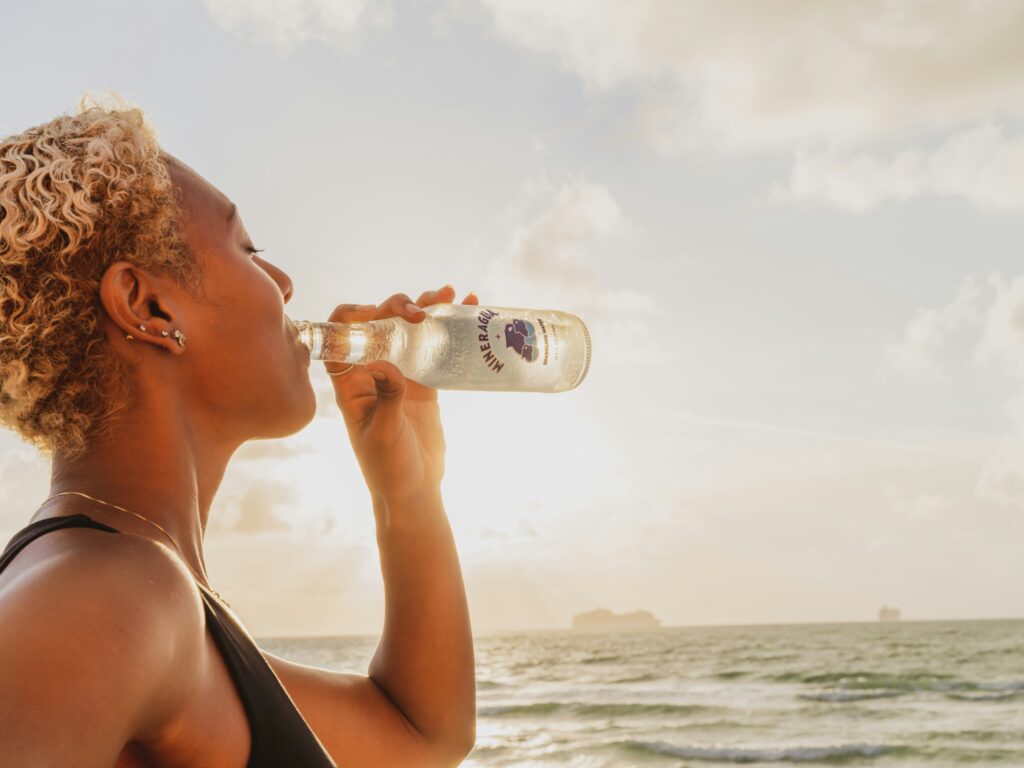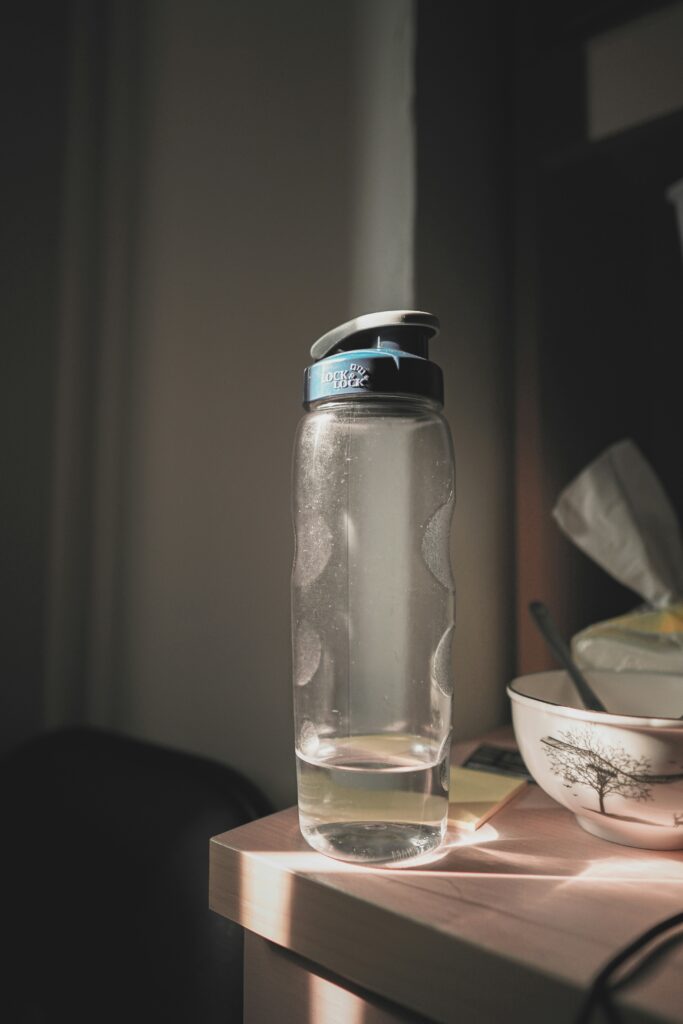Understanding the importance of hydration for overall health isn’t just a buzzword in the wellness community. It’s a fundamental principle for maintaining the body’s optimum functioning and overall well-being. In our forthcoming detailed guide, “Hydrate for Health: The Ultimate Guide to Staying Hydrated and Why It’s Essential for Your Well-being”, we delve deep into the science and importance of hydration, providing you with an all-inclusive understanding of its significance.

Did you know that almost 60% of our bodies are made up of water? That’s how crucial it is! But how much water do we really need? Are there ways to enhance hydration? What happens when we don’t get enough water? These are just a few of the thought-provoking questions we will answer, revealing fascinating facts and busting myths about hydration.
Furthermore, we will present you with effective strategies and tips to ensure you stay well-hydrated. From understanding the tell-tale signs of dehydration to knowing the healthiest hydrating beverages, our guide covers it all. We also break down how different aspects of your lifestyle, such as exercise and diet, can affect your hydration levels.
We promise that this comprehensive guide will serve as your ultimate resource on hydration. It’s time to quench your thirst for knowledge about hydration’s vital role in health and well-being. So, get ready to dive into the refreshing world of water and wellness with “Hydrate for Health: The Ultimate Guide to Staying Hydrated and Why It’s Essential for Your Well-being.”
The Science Behind Hydration
The process of hydration is more complex than just drinking water. Water is essential for maintaining various bodily functions, such as regulating body temperature, lubricating joints, and aiding digestion. It is also crucial for delivering nutrients to cells and flushing out waste products.
The Importance of Electrolytes
Water alone, however, isn’t the sole factor to maintaining hydration. Electrolytes, such as sodium, potassium, and calcium, are vital for maintaining fluid balance in the body. They allow cells to generate energy, maintain the stability of cell walls, and function properly. When your body is dehydrated, these electrolytes are also lost, leading to a disruption in normal bodily functions.
Recognizing Dehydration
Understanding and identifying the signs of dehydration is essential for maintaining good health. While thirst is the body’s natural signal that it needs water, by the time you actually feel thirsty, you may already be mildly dehydrated. This is why it’s important to proactively stay hydrated—especially in hot climates, during physical activity, or when ill.
Common symptoms of dehydration include:
- Dry mouth and cracked lips
- Headaches or difficulty concentrating
- Dizziness or lightheadedness
- Muscle cramps
- Fatigue or sudden tiredness
- Dark yellow or amber-colored urine
- Decreased urination
These symptoms may develop gradually and are sometimes mistaken for signs of hunger, stress, or illness. Monitoring the color and frequency of your urine is a simple and effective way to gauge hydration status—light yellow indicates proper hydration, while darker shades can be a warning sign.
⚠️ Chronic Dehydration
While acute dehydration can be reversed quickly with fluid intake, chronic dehydration is more insidious. It occurs when the body consistently doesn’t get enough water over time, often without obvious symptoms. This can lead to persistent fatigue, digestive issues, dry skin, and long-term organ strain.
Left unmanaged, chronic dehydration may contribute to serious health issues such as:
- Kidney stones due to concentrated urine
- Urinary tract infections (UTIs)
- Constipation from lack of digestive lubrication
- High blood pressure, as blood volume decreases
- In severe cases, electrolyte imbalances and seizures
Populations most at risk include elderly adults, athletes, individuals with chronic illnesses, and people living in hot climates. Preventing chronic dehydration means making hydration a daily habit, not just something you focus on when you’re thirsty.
The Role of Hydration in Health and Well-being
Hydration is far more than just quenching thirst—it’s a foundational element of health that impacts virtually every system in the body. Water is involved in regulating body temperature, transporting nutrients, lubricating joints, aiding digestion, and supporting cellular function. Even mild dehydration can disrupt these essential processes, leading to fatigue, headaches, poor concentration, and long-term health implications if left unchecked.
Maintaining adequate hydration is not only vital for daily wellness but also for resilience during physical, emotional, or environmental stress. Whether you’re an athlete, a busy professional, or simply navigating everyday life, proper fluid intake is key to functioning optimally.
💪 Physical Performance
For athletes and physically active individuals, hydration directly affects endurance, strength, and recovery. During exercise, the body loses fluids through sweat, which can result in decreased blood volume, muscle cramps, dizziness, and a spike in heart rate. If not replenished, even a 2% loss in body water can significantly impair physical performance.
Adequate hydration helps:
- Regulate body temperature during intense activity
- Deliver oxygen and nutrients to muscles
- Flush metabolic waste from the body
- Reduce the risk of injury and fatigue
Athletes should monitor hydration before, during, and after physical exertion—especially in hot or humid environments. Including electrolytes when sweating heavily or exercising for extended periods can also help maintain the body’s fluid balance.
Mental Clarity
Hydration also affects cognitive functions. Dehydration can impair attention, memory, and motor skills. It can also lead to mood swings and increased feelings of anxiety and fatigue.
Hydration Strategies
Knowing the importance of staying hydrated, here are some strategies to ensure you are drinking enough fluids throughout the day.
Set a Daily Water Goal
One strategy is to set a daily water goal. This can be based on your body weight or activity level. For example, a common recommendation is to drink at least half of your body weight (in pounds) in ounces of water each day.
Use a Hydration Reminder
Another strategy is to use a hydration reminder. This can be an app on your phone or a physical reminder, like a water bottle with marked levels.
Eat Hydrating Foods
Finally, you can also hydrate by eating foods high in water content. This can include fruits like watermelon and oranges, and vegetables like cucumbers and lettuce.
Hydration Myths Debunked

As the conversation around hydration gains more attention in the health and wellness space, a variety of persistent myths and misconceptions have emerged. While well-intentioned, many of these ideas can lead to confusion or unhealthy habits. Let’s take a closer look at some of the most common hydration myths—and uncover the science behind what your body really needs.
❌ Myth #1: You Need to Drink 8 Glasses of Water a Day
The famous “8-glasses-a-day” rule has become deeply embedded in popular health advice. While it’s a decent starting point, hydration needs are not universal. Your ideal daily fluid intake depends on various factors such as:
- Age and gender
- Body size and composition
- Physical activity levels
- Diet (e.g., high water content in fruits and vegetables)
- Climate and humidity
- Pregnancy or medical conditions
Some people may thrive on more than 8 cups, while others may need less. A better guideline? Pay attention to your thirst, the color of your urine (pale yellow is ideal), and how your body feels throughout the day. Hydration is about balance—not rigid rules.
❌ Myth #2: Coffee and Tea Dehydrate You
It’s a common belief that coffee and tea, due to their caffeine content, act as diuretics and therefore contribute to dehydration. While it’s true that caffeine can have a mild diuretic effect, research has shown that moderate consumption of caffeinated beverages does not offset hydration. In fact, coffee and tea can contribute to your daily fluid intake, just like water.
Unless consumed in excessive amounts, these beverages are not dehydrating—especially for individuals who drink them regularly and have built up a level of tolerance to caffeine’s effects. That said, balance is important. Pairing caffeinated drinks with water throughout the day is a smart strategy to stay optimally hydrated while enjoying your favorite beverages.
Hydration for Special Populations
While hydration is vital for everyone, some populations have distinct fluid requirements due to physiological or lifestyle factors. People such as pregnant and breastfeeding women, athletes, children, and older adults may require more attentive hydration strategies to support their overall health.
During pregnancy and lactation, for example, the body requires additional fluids to support fetal development, increased blood volume, and milk production. Athletes lose significant water through sweat and need to replenish both fluids and electrolytes. Older adults may not sense thirst as efficiently, making proactive hydration especially important.
By recognizing and adjusting to these unique needs, we can prevent dehydration-related complications, improve energy levels, and enhance physical and cognitive performance. Hydration isn’t just about quantity—it’s about aligning fluid intake with your body’s specific demands.
🤰 Pregnant and Breastfeeding Women
During pregnancy and lactation, a woman’s body undergoes profound changes, many of which increase the need for water. Hydration supports vital processes, including the formation of amniotic fluid, increased blood volume, and digestion. Moreover, water plays a critical role in regulating body temperature, transporting nutrients to the fetus, and removing waste.
Pregnant women are typically advised to consume at least 2.3 to 3 liters (about 10–12 cups) of fluids per day, though this may vary depending on climate, activity levels, and individual health. Fluids can come from water, herbal teas, and water-rich foods like fruits and vegetables.
For breastfeeding mothers, hydration is even more essential. Breast milk is approximately 87% water, and producing an adequate milk supply requires consistent fluid intake. Experts recommend nursing mothers drink about 3.1 liters (13 cups) of water daily to support lactation and maintain energy levels.
It’s also important to note that thirst may not be a reliable signal for pregnant or breastfeeding women. Therefore, developing a habit of drinking water at regular intervals—such as after nursing sessions or with every meal—can help ensure hydration is sustained throughout the day.
Athletes
Athletes need to consume more fluids to compensate for the water loss during exercise.
Elderly
Elderly individuals may have a diminished sense of thirst, which can lead to dehydration if not properly managed.
In conclusion, staying hydrated is essential for your health and well-being. By understanding the science behind hydration and implementing hydration strategies, you can ensure you are providing your body with the fluids it needs to function at its best.
Prioritizing Personalized Hydration for Optimal Health
Hydration is a fundamental pillar of good health, but it’s not a one-size-fits-all concept. Special populations—such as pregnant and breastfeeding women, athletes, and older adults—have unique physiological needs that require a more thoughtful and proactive approach to fluid intake. Whether it’s supporting fetal development, replenishing fluids lost during intense physical activity, or compensating for a reduced sense of thirst, tailoring hydration strategies is essential to maintaining overall wellness.
For athletes, staying hydrated is critical not only for performance but also for recovery and injury prevention. For the elderly, who may not feel thirsty even when their bodies need water, building hydration into daily routines is key to avoiding fatigue, confusion, and more serious health risks. Likewise, pregnant and nursing mothers must meet increased demands to support both their own bodies and those of their children.
By recognizing the individualized nature of hydration and implementing small, consistent habits—such as carrying a water bottle, monitoring urine color, or setting reminders—we can all ensure that our bodies receive the fluids they need. In doing so, we support not only physical health but also mental clarity, energy levels, and long-term vitality. Hydration is more than a daily task—it’s a lifelong commitment to wellness.
Conclusion
In summary, staying hydrated is essential for optimal health and well-being. A consistent intake of water can have profound effects on both physical and mental functions, including boosting energy levels, improving mood, and promoting optimal brain function. Drinking enough water also aids digestion, promotes healthy skin, and helps keep our bodies functioning at their best.
Whether you’re a fitness enthusiast, a busy professional, or someone who simply wants to live a healthier lifestyle, ensuring adequate hydration should be a top priority. Carry a water bottle with you, eat hydrating foods, and remember to drink before you feel thirsty.
In this ultimate guide, we’ve provided actionable strategies to help you stay hydrated and explained why it’s so crucial for your well-being. Remember, hydration is not a one-size-fits-all. It’s important to listen to your body, adjust your water intake based on your lifestyle and activity level, and seek medical advice if needed.
By committing to maintaining proper hydration, you’re investing in your overall health and wellness. This simple yet effective habit can make a significant difference in your life. So, drink up and hydrate for health! 🚰🥛💧🌿
Remember: Hydrate, feel great!



